Team Members
Permanent Members
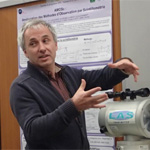
JMC_150
|
Jean-Martial CohardEnvironment physicist Ass. Prof. UGA, team leader To be able to predict the future of water resources, one has to be able to understand and quantifying precipitations and "vanishing" water volumes that return to the atmosphere by evaporation and transpiration of the vegetation. At the annual scale, evapotranspiration is the main loss (64%) of the continental hydrological budget. My research aims to propose methodologies for observing and modeling evapotranspiration, particularly in heterogeneous and / or mountainous environments.
|
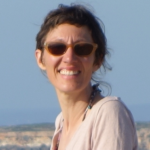
|
Nathalie PhilipponClimatologist CR CNRS, co-team leader My research themes and objectives focus on understanding climate variability in sub-Saharan Africa to better understand its impacts on vegetation functioning. I address these questions by analyzing key parameters such as precipitation and solar radiation, derived from in-situ, satellite or climate simulation data, and interactions of time scales, from the diurnal cycle to the intra-seasonal and interannual variability.
|
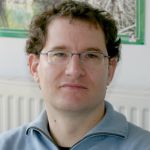
|
Sylvain BigotGeo-Climatologist Full Professor UGA Geo-climatologist, I study the climatic variability of specific tropical areas (West Africa, Central Africa, Madagascar) in connection with the natural and anthropic dynamics of forests (phenology, bioclimates, uses, fires, deforestation ), and through data from in situ observation, remote sensing or numerical modeling. Thanks to research-training actions (I am responsible for 2 master’s courses in environment-geomatics : GEOIDES and GEOSPHERES), I also coordinate studies on climate and urban climate services or on mountain areas. |
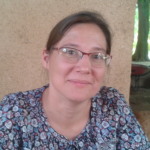
|
Marie BoucherHydro-Geophysician CR IRD Currently settled in Niger, I am working on the links between surface and groundwater. The originality of my approach consists in using geophysical methods, especially the Magnetic Resonance Sounding (MRS) technique, to characterize aquifers and thus better constrain hydrogeological models. The results of this work concern societal issues such as water resource management and the assessment of environmental risks such as floods. |
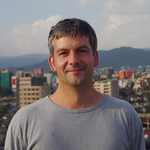
|
Guillaume FavreauHydro-Geologist CR IRD, IRD representation in Niamey (Niger)
|
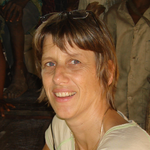
|
Sylvie GalleHydrologist CR IRD I am in charge of the National Observation Service (SNO) AMMA-CATCH since 2014. This SNO aims to study the hydrological impact of changes Climate and land use in West Africa. It brings together 47 researchers and technicians from 8 French and African laboratories. Within the SNO, my research activity concerns the evaluation of the terms of the hydrological balance by measurement and modeling in Sudanian climate. |
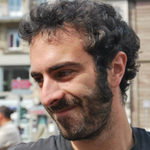
|
Basile HectorHydrologist CR IRD I am mostly focused on observing, understanding, and modeling water storage in the different compartments of the critical zone (defined on a vertical from the impermeable bedrock to the top of canopy) in West-Africa to help define its sensitivity to global changes (i.e. anthropic + climate). Moving now to the spatial scales of water resources management and risk mitigation, I try to build up on my background to conduct both heterogeneous data fusion and hyperresolution critical zone modeling to bring answers to the hydrological functioning of the critical zone at these scales, in West-Africa. |
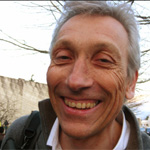
|
Thierry LebelHydro-Climatologist DR IRD
|
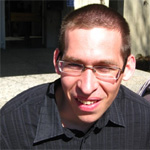
|
Geremy PanthouHydro-Climatologist Physicien Adjoint CNAP
|
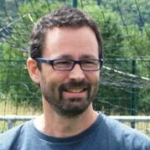
|
Thierry Pellarin,Remote sensing Hydrologist DR CNRS, Ass. Dir. of IGE Spatial remote sensing provides us, with still more details, information on the various compartments of the water cycle (groundwater, surface water, soil moisture, evapotranspiration). Knowledge of the volumes of water in these compartments and the associated flows is of interest both to predict their evolution over time and for societal applications related to agriculture, management of rivers or deep aquifers. My research aims to exploit these remote sensing products in hydrology with a particular interest for research and applications for Africa. |

|
Guillaume QuantinHydrologist IR IRD
|
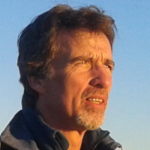
|
Jean-pierre Vandervaere,Hydrologist Ass. Prof. UGA My work focuses on surface soils characterization in various eco-hydro-climatic contexts (Sahelian and Sudanian Africa, sloping areas of Lao PDR, flash-flooding areas of SE France) by developing innovative metrologies. I aim at measuring parameters and finding relations which keep relevant at scales beyond that of the measurement, mainly for infiltration-runoff partition. Over the last few years, I was increasingly involved in teaching activities in Africa (Cameroon, Benin, Niger) through large federative programs and MOOC development. |
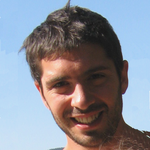
|
Théo VischelHydro-Climatologist Ass. Prof. UGA My research focuses on the long-term evolution of hydro-climatic systems to better cope with drought and flood risks. My emphasis is on studying the variability of precipitation in West Africa and its impact on the response of regional hydrosystems. |
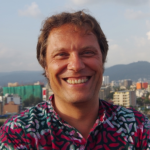
|
Jean-michel VouillamozHydro-Geologist CR IRD Groundwater is the main source of water used to meet household needs in the southern countries, and its use for irrigation is increasingly mentioned. However, knowledge of current groundwater reserves and the estimation of their future in the context of rapid changes are still very incomplete. My research aims to develop and implement methodologies to quantify these reserves and to understand their temporal evolution. My work is developing in partnership with colleagues from the South, and my activities include support for young researchers from the South. |
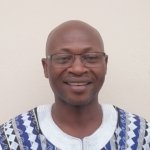
|
Maxime WubdaHydro-Geologist IE IRD
|
Non-permanent Members
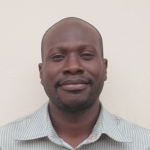
|
Christian AlleHydro-Geologist PDoc, AGIRES Project |
René BodjrenouHydrologist PhD, OMIDELTA Project |
|
Guillaume ChagneauHydro-Climatologist PhD
|
|
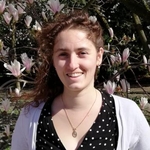
|
Claudine CharrondièreAtmospheric Physicist PhD Katabatic winds are gravitational flows that develop as a result of radiative cooling at the surface. They contribute to accentuate pollution problems in the valleys, and their parameterization in weather models is a real challenge.
|
Alban DepeyreHydrological Modeler PhD
|
|
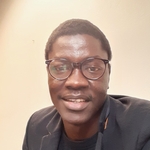
|
Cheikh-Waly DiedhiouHydro-Climatologist PhD My research focuses on the evolution of extreme rainfall. My focus is on the study of IDF (Intensity - DURATION - FREQUENCY), present and future, in West Africa, particularly in Senegal, to better cope with flood risks in the area. |
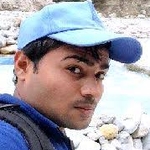
|
Aniket GuptaHydrologist PhD .
|
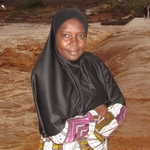
|
Aghali IngatanSoil Physicist PhD
|
Oumou-Kaltoum Hama-GarbaHydro-Geologist, Hydro-Geophysicist PhD My research work focuses on the management of groundwater and surface water resources through geophysics and modeling in West Africa, specifically in Niger. They are more focused on the one hand on the characterization of formations by geophysics, and on the other hand, on a modeling of the flows exchanged between surface water and groundwater. |
|
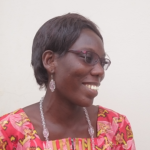
|
Valérie KotchoniHydro-Geologist PDoc, AGIRES project
|
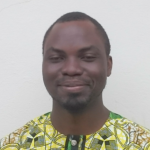
|
Fabrice Lawson, PhDHydro-Geologist PDoc, projet AGIRES
|
Boubacar MaijimaaHydro-Climatologist PhD
|
|
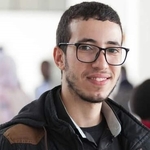
|
Amine OuhechouClimatologist PhD I am a PhD student at the IGE, studying the space-time variations of incident solar radiation in Central Africa. My work focuses on the intercomparison of different satellite estimates of solar radiation with in situ observations, and on the variability of solar radiation and its simulation by climate models. |
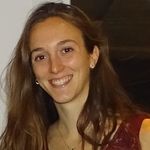
|
Elisa SauzedeHydrologue PhD
|
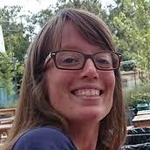
|
Catherine WilcoxHydro-Climatologist PDoc
|
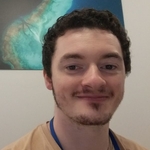
|
Alexandre ZoppisComputer Scientist Ing. I am working on the Prism (Precipitation Inferred from Soil Moisture) processing chain allowing accurate estimation of rainfall volume in Africa from soil moisture data (e.g. SMOS) and a satellite rainfall product. The knowledge of soil moisture allows real-time correction of the bias of the satellite rainfall product and avoids waiting several weeks for an adjusted product. |
They contributed to the PHyREV story
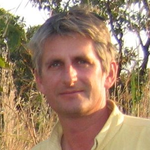
|
Marc DescloitresHydro-Géophysicien IR IRD The purpose of my research is to study the problems related to water in the subsoil and aquifers in the countries of the South, using geophysical tools. It is a matter of locating the water, knowing its quantity and its quality, trying in particular to locate the sites of infiltration and recharge. It also contributes to informing hydrological models to improve our knowledge of water resources, assess their vulnerability and better predict their future. I carry out research activities on experimental sites located in contrasting climatic zones and in geological contexts (Bénin, Burkina Faso) or sedimentary (Niger, Bolivia). |
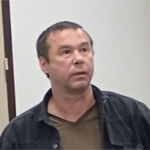
|
Anatoly LegtchenkoHydro-Géophysicien DR IRD
|
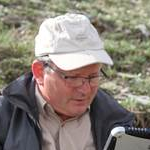
|
Jean-paul LaurentEnvironment Physicist IR IRD - Hydro-météorological instrumentation
|
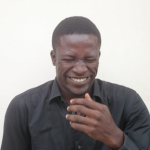
|
Simon KemgangHydro-Geophysicist Dr, Lecturer, Univ. of Ngaoundere, Cameroun
|
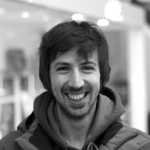
|
François GibonRemote sensing Hydrologist Dr
|
Benoit PérimontIngénieur-docteur en géosciences | Traitement d’image - Python chez THALES |
|
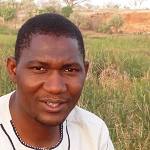
|
Moussa Malam AbdouHydrologist Ass. Prof., Univ. de Zinder, Niger Mes travaux de recherche portent sur l’eau et les sols. Ils sont axés, d’une part, sur l’étude de fonctionnement hydrodynamique des états de surface, en lien avec l’occupation des sols et, d’autre part, sur l’étude des risques liés à l’eau.. |
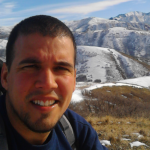
|
Carlos CasconHydro-meteorologist PDoc, Laboratoire d’Aérologie My research interests focus on the control and the signature of the surface on atmospheric processes. My PhD focused on Atmospheric Boundary layer transition from daily to nocturnal conditions. My postdoc at IGE in the frame of the SMOS+RAINFALL project (funded by the European Space Agency) was to improve real-time satellite-based precipitation products (such as CMORPH, TRMM-3BRT or PERSIANN) through the assimilation of SMOS (Soil Moisture and Ocean Salinity) satellite soil moisture data. |
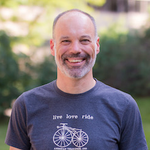
|
Juin 2017 : Reed Maxwell, Professor CSM, USA CoMy research interests : goes to hydrology, understanding perturbations to the hydrologic cycle though observations and numerical models, reactive transport, scaling in watersheds, coupled simulation and high-performance computing. |
Juin 2017 : Phil Harris, Dr CEH, UK |
|
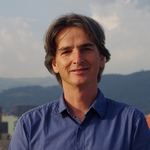
|
Déc. 2016 : Richard Taylor, Professor UCL, UKMy Research is primarily focused in two areas :
|
Déc. - Juin 2017 : Claire Aly, Post Doc. AMMA2050 |
|
2013 - Juil. 2016 : Tania Gascon, Dr UGAI started my research developing operational methods for predicting debris floods and torrential floods using numerical modelling for small basins of rapid response in Venezuela. During this experience, the availability of hydro-meteorological data was a key aspect for setting up Early Warning Systems (EWS). Afterwards, I focused on the research of potential rainfall sources for hydrological studies which led me to undertake a PhD in France where I evaluated the usefulness of satellite data (TRMM, PERSIANN, CMORPH) in the hydrological modeling of an African basin (Ouéme, Benin), one of the pilot sites of the AMMA-CATCH project which had high-resolution ground data in space and time available. Subsequently, I joined the World Meteorological Organization (WMO) to work on projects related to EWS for flood forecasting. My main activities are focused on identify elements for improving the capacity of national services to produce and deliver flood forecasts and propose strategies for enhancing their practices and building EWS according to their specific needs.
|
|
2015 - Fev. 2017 : Hélène Barral, CDD Ing. CRITEX |
|
- Juil. 2016 : Marine Boulogne, Docteur UGADuring my first Master’s degree in Remote Sensing and Environment (Rennes 2 University, 2011) I have carried out my first internship in order to monitor the deforestation and map the land use in Carlinda (Mato Grosso, Brasil), using different remote sensing tools.
|
 The federation
The federation Intranet
Intranet









